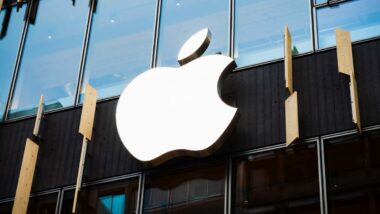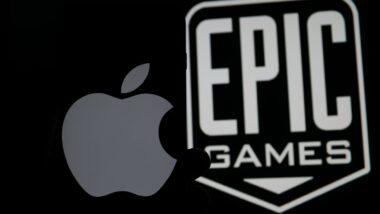Top Class Actions’s website and social media posts use affiliate links. If you make a purchase using such links, we may receive a commission, but it will not result in any additional charges to you. Please review our Affiliate Link Disclosure for more information.

Class action lawyers for the plaintiffs filed a response on Feb. 24 to Apple’s claim that the potential Class would be too large and would not be an accurate representation of those harmed by the inflated e-book prices. The e-book antitrust litigation is currently underway in the U.S. District Court for the Southern District of New York.
“At bottom, Apple’s tactic is to point to potential exceptions and variations in damages to claim the class lacks cohesiveness,” the plaintiffs’ attorneys write. “But requiring the precision of perfect symmetry would defeat all classes in the real world.”
The memorandum also said that Apple’s attacks on the witnesses used in the e-book class action lawsuit were unwarranted, saying Apple was wrong in its assertion that the witnesses had exaggerated the damage done to its customers.
Apple’s expert, Joseph Kalt, calculated the damages at $280 million and the plaintiffs’ expert, Dr. Roger Noll, said the damages were $307 million, differing by nine percent. Apple said the plaintiffs’ model for estimating damages was not able to show “wide-spread injury and a just and reasonable estimation of damages.”
Kalt said that Noll had used “too many publishers in his control group and too long of a time period.”
“Dr. Noll’s regression model is a form of common proof to demonstrate injury and damages accepted in scores of antitrust class actions,” the memorandum says.
“Every expert during the liability phase who opined whether the conspiracy elevated the publisher defendants’ e-book prices said yes — full stop. The estimated average total overcharge ranged between 16.8 percent and 19 percent, with the court finding e-book prices increased on average by 18.6 percent,” the plaintiffs state.
Apple argued that Noll’s conclusion that the e-book prices were raised almost 20 percent, at 18.1 percent, was not accurate, and that is reason enough not to certify the class and not to let the data to be admitted as evidence to the jury because the expert applied the over charge to almost 100 percent of sales.
“But even Apple’s recently produced individual customer identification records hammer home the reliability of Dr. Noll’s opinions (and speciousness of Apple’s arguments),” the memorandum explains. “Apple’s own data demonstrate at least 99.8 percent of iBookstore customers who bought an e-book from the publisher defendants paid an overcharge.”
U.S. District Judge Denise Cote said in July that Apple along with five major book publishers were in violation of antitrust laws because they had conspired to increase the price of e-books back in 2010. The original e-book price-fixing class action lawsuit, filed in 2011, alleged that Apple conspired with publishers to raise prices in order to “neutralize the Kindle.”
Judge Cote approved a $95 million class action settlement in December 2013 between e-book publishers and the attorneys general of 33 states.
The publishers who were found to have colluded with Apple to raise e-book prices after being sued by the U.S. Department of Justice are Hachette Book Group Inc., HarperCollins Publishers LLC, Simon & Schuster Inc., Penguin Group USA Inc. and Holtzbrinck Publishers.
The plaintiffs are represented by Hagens Berman Sobol Shapiro LLP and Cohen Milstein Sellers & Toll PLLC.
The E-Book Price-Fixing Class Action Lawsuit is In re: Electronic Books Antitrust Litigation, Case No. 1:11-md-02293, in the U.S. District Court for the Southern District of New York.
UPDATE 1: Apple Inc. announced June 16, 2014, that it had reached an undisclosed class action lawsuit settlement in the e-book antitrust litigation.
UPDATE 2: A federal judge preliminarily approved a $450 million Apple e-book class action settlement on Aug. 1, 2014. A Final Fairness Hearing is scheduled for Nov. 21, 2014.
UPDATE 3: A settlement website has been established for the Apple e-books class action settlement. Click here.
UPDATE 4: On Nov. 21, 2014, U.S. District Judge Denise Cote granted final approval to the Apple e-book class action settlement.
ATTORNEY ADVERTISING
Top Class Actions is a Proud Member of the American Bar Association
LEGAL INFORMATION IS NOT LEGAL ADVICE
Top Class Actions Legal Statement
©2008 – 2024 Top Class Actions® LLC
Various Trademarks held by their respective owners
This website is not intended for viewing or usage by European Union citizens.















4 thoughts oniBook Customers Spar with Apple in E-Book Class Action Lawsuit
UPDATE 4: On Nov. 21, 2014, U.S. District Judge Denise Cote granted final approval to the Apple e-book class action settlement.
UPDATE 3: A settlement website has been established for the Apple e-books class action settlement. Click here
UPDATE 2: A federal judge preliminarily approved a $450 million Apple e-book class action settlement on Aug. 1, 2014. A Final Fairness Hearing is scheduled for Nov. 21, 2014.
UPDATE 1: Apple Inc. announced June 16, 2014, that it had reached an undisclosed class action lawsuit settlement in the e-book antitrust litigation.